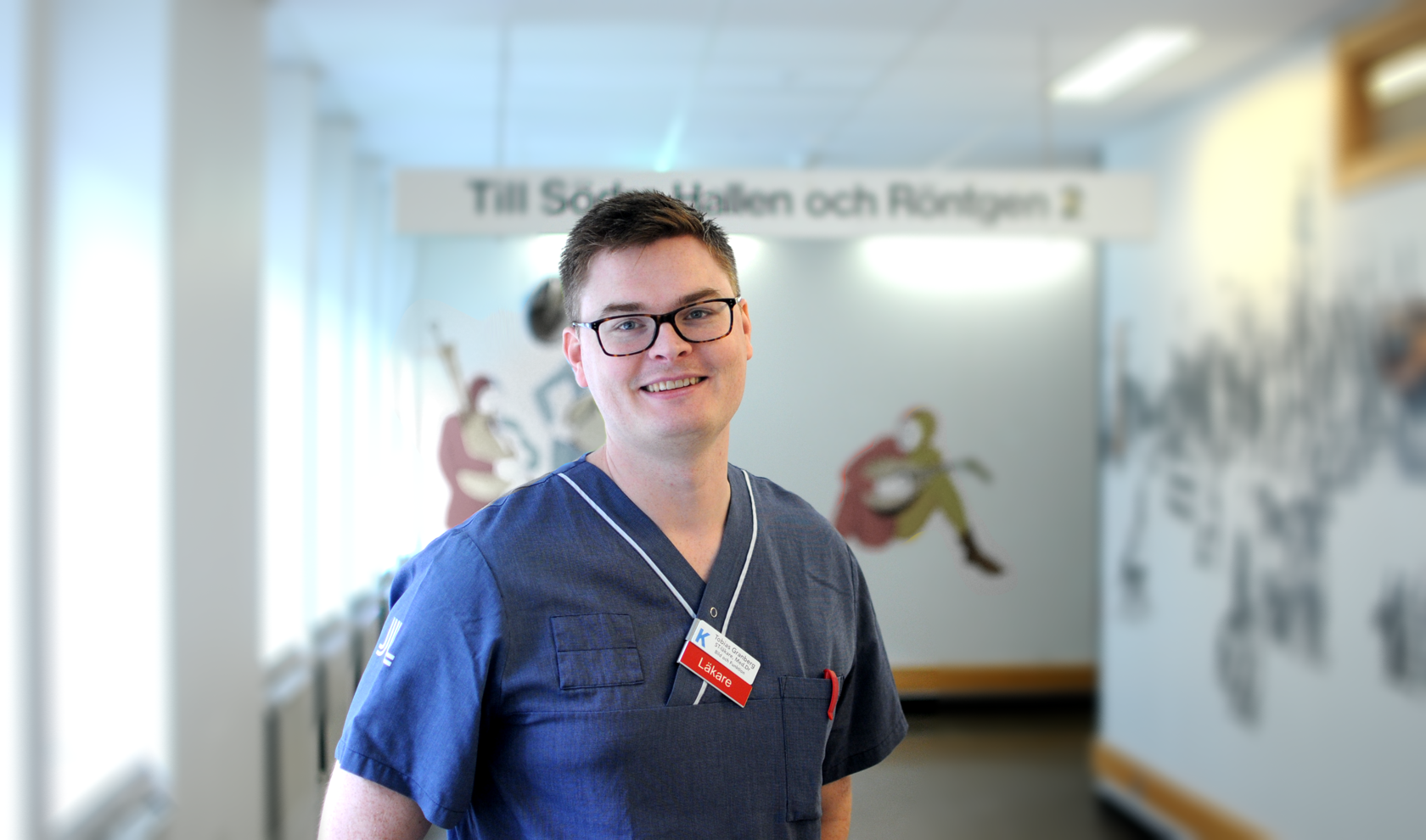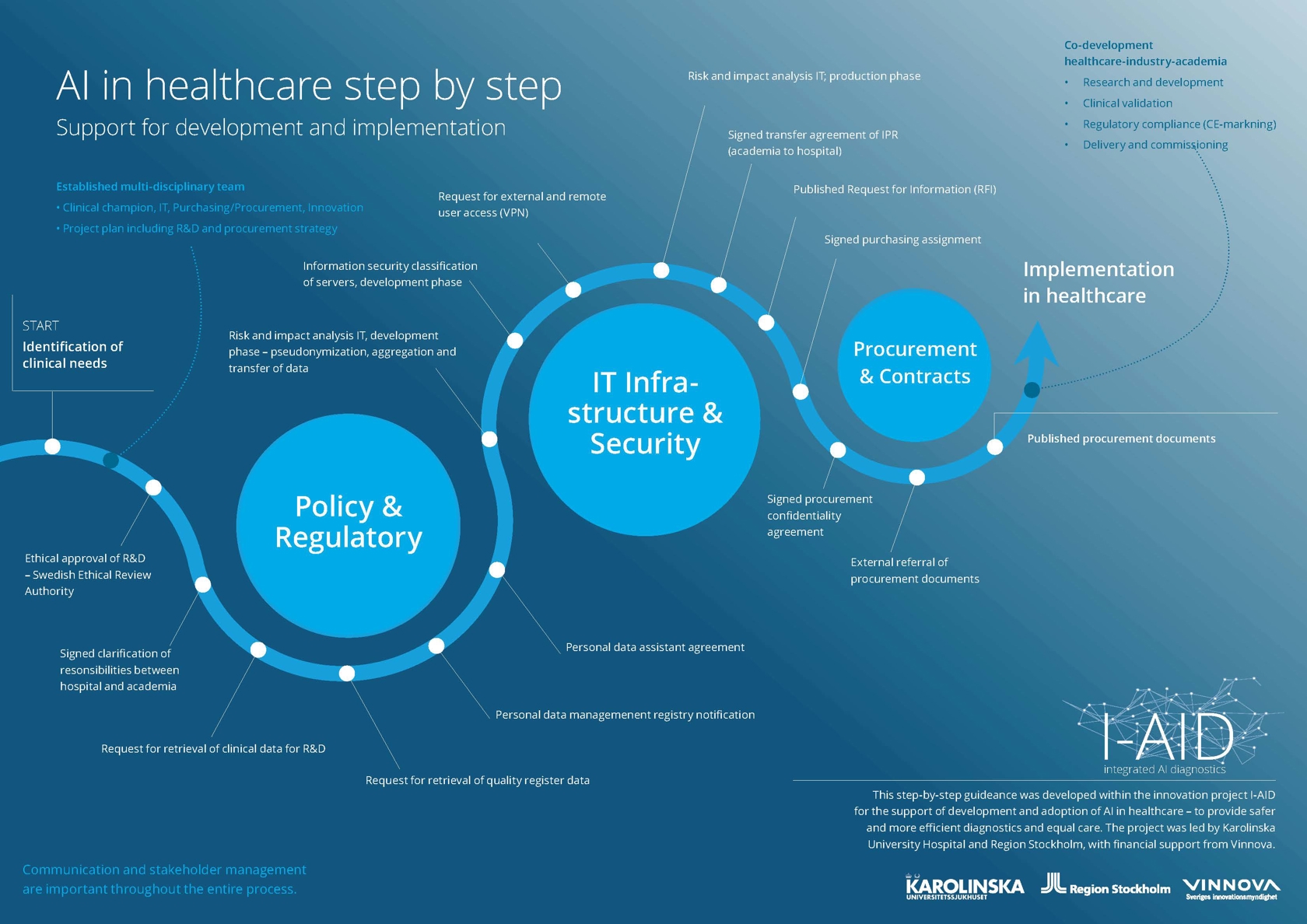Accelerating AI development in the hospital setting

The project I-AID, Integrated AI Diagnostics, was initiated to accelerate the development, and implementation of artificial intelligence, AI, in healthcare. The project laid a foundation for future development and implementation of AI based on clinical needs, in the clinical setting and in collaboration with an industry partner.
Guide for industry collaboration and development
The I-AID project has resulted in a well-established trajectory, a support to safely develop and introduce AI into healthcare through collaboration between healthcare organizations, researchers, and companies. The guide can be used by clinical departments at the hospital to identify the need for AI support and subsequently choosing a path to ensure that a matching solution is developed – if the solution is not yet commercially available on the market.
Solution implemented in clinical routine
Three clinical pilot projects were run during the project, of which one (Quantitative image measurements and the reduced need for MR contrast agents in MS) is now implemented in the clinical routine while development continues with industry partners.
Knowledge recycled
Since the end of the project, more projects have been started in neuroradiological activities together with companies, based on lessons learned from I-AID and contract forms.
